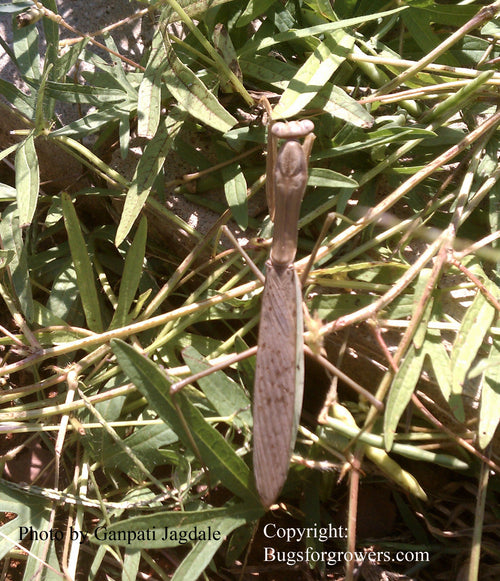Speckled green fruitworms
Damage caused by the Speckled green fruitworms
All the larval stages of speckled green fruitworm cause feeding damage to buds, flowers, leaves and fruits of many fruit and forest trees including apple, crabapple, cherry, plum, maple, birch and willow.
Facts (show all)
- Common names
-
- Speckled green fruitworms
- Scientific name
-
- Orthosia hibisci
- Identification
-
Adults: Moths of speckled green fruitworms are dark reddish brown in color with dark spots on forewings.
Eggs: Eggs are of speckled green fruitworms are pale gray in color.
Larvae/Caterpillars: Mature larvae of speckled green fruitworms are green in color with 5 longitudinal white stripes present on the back and sides of the larval body. Aslo, white speckles are present on all over the larval body. Larvae are about 1.5 inch long with green head capsule.
Pupae: Pupae of speckled green fruitworm are brown in color.
- Biology
-
Speckled green fruitworm overwinter as pupa in the soil. Adult moths emerge from pupae early in the March through May. After mating, females lay eggs in masses on the leaves in the canopy. Eggs hatch into small caterpillars that start feeding on the buds, flowers, leaves and fruits. While feeding, caterpillars develop 6 developmental stages and mature. In June, mature larvae drop to the ground and pupate in the soil and life cycle continues. Under favourable conditions, speckled green fruitworm can complete 1 generation in year.
- Organic Control of the Speckled green fruitworms
-
- Following beneficial bugs and plant products are used for organic control of the Speckled green fruitworms
- Egg parasitic wasps
-
- Trichogramma brassicae
- Trichogramma pretiosum
- Trichogramma minutum
- Trichogramma platneri
- Predatory praying mantis
-
- Tenodera aridifolia sinensis
- Stagmomantis crolina
- Plant Product
-
- Molt-X® - (Active ingredient – Azadirachtin a compound isolated from neem leaves)


